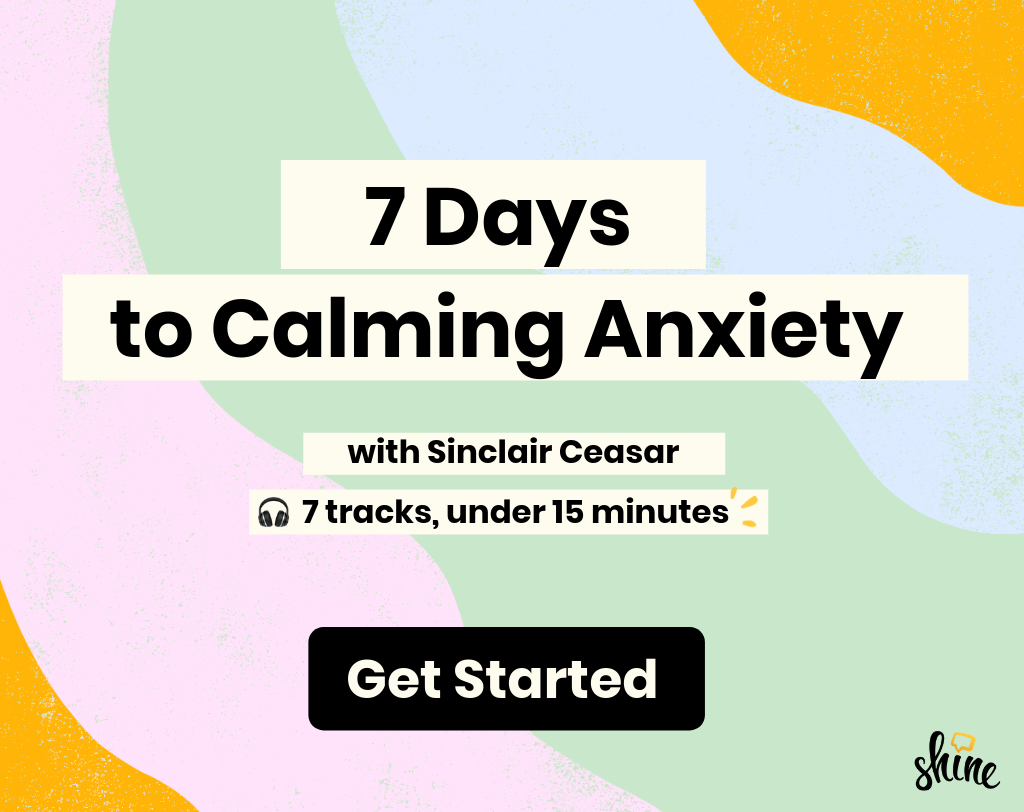How to Use Eustress—the *Good* Kind of Stress—to Your Advantage
May 6, 2019
Stress can be…good.
Hear me out, OK?
The truth is, not all stress is created equal. In fact, a specific kind of stress—called "eustress"—is actually beneficial when it comes a-callin' and creepin' up on you.
Even though "eustress" sounds like the name of a Greek goddess, it's actually the opposite of the well-known "distress," and can improve your wellbeing.
In the 1970s, Hungarian endocrinologist Hans Selye (who’s known as the founder of the stress theory) named the two types of stress: eustress and distress, and proclaimed the former actually has positive emotional benefits.
Eustress is often short-term, and it’s that energizing and motivating stress that can help you focus your performance. It feels exciting—unlike negative stress, which we all know tends to feel unpleasant.
Eustress is often short-term, and it’s that energizing and motivating stress that can help you focus your performance.
The Positive Psychology Program sums up the differences between eustress and stress as the following:
Signs of eustress:
●︎ It only lasts in the short term
●︎ It energizes and motivates
●︎ It is perceived as something within our coping ability
●︎ It feels exciting
●︎ It increases focus and performance
Signs of negative stress, or distress:●︎ Lasting in the short as well as in the long term
●︎ Triggering anxiety and concern
●︎ Surpassing our coping abilities
●︎ Generating unpleasant feelings
●︎ Decreasing focus and performance
●︎ Contributing to mental and physical problems
You’ve probably felt eustress without even knowing it. Some common scenarios when it pops up: When you’re diving into a new romantic relationship, traveling, exercising, cooking a complex meal, going on a hike, and riding a rollercoaster.
Of course, stress, in all forms, looks different for everyone. (I shudder thinking about how certain people love riding a rollercoaster, because nothing could excite me less.) Our bodies react the same way to both eustress and distress (think: firing off stress hormones)—and eustress can quickly become distress if there’s too much.
A simple way to know if you’re experiencing eustress or stress: “As long as the pushing of this boundary feels pleasurable or enjoyable, it is eustress,” according to the Positive Psychology Program. “If it doesn’t feel good–even in a remote sense–it’s distress.”
So now I like to think of eustress as you-stress—something that can benefit you.
Learn to accept all of you with your 7 days to Self-love meditations, now in the Shine app. Here's a sneak peek:
Here's how to identify the types of stress in your life, how to introduce more eustress creators, and transform distress into the more productive form of eustress.
Sort Your Stress Into Buckets
Every time I'm faced with a career move or a new assignment, I get that funny butterfly feeling in my stomach. My thoughts race: How's this going to go? What will this be like? Can I possibly do it?
Are these heightened emotions excitement? Stress? Simply being overwhelmed?
I'd argue that this is, in fact, eustress in action. Because they're not exactly elements of distress —I’m excited about being on the eve of something great and new. This is stress related to positive anticipation.
You might have the same experience when you're preparing for a big move or a major life change, or reaching date three with someone who gives you the same funny butterfly feeling.
Thinking of these events as eustress, and not distress, might help you make sense of the feeling, feel less overwhelmed, and start to see the positive benefits associated with your experience.
Thinking of these events as eustress, and not distress, might help you make sense of the feeling.
For instance, if you're feeling stressed about accepting a new job and overwhelmed by two diverging life paths, focus on the positive. Ask yourself: What good things await me at this new job? Or, what good things will I receive if I stay at my current job?
This is a more productive way of thinking than jumping to the negative—What if my boss is a monster? What if I can't keep up?—and this lens of positivity can help ease your stress.
Practice Flipping Distress Into Eustress
Some forms of stress (or distress) are firmly rooted as real stress and can't be budged. (I'm thinking about illness, severe financial struggles, or being embroiled in tumultuous relationships.) But other events that present themselves as distress might be able to be transformed into eustress.
The trick is to view an event as a challenge, not a threat. Research shows when we do this, it can decrease our stress response and levels of anxiety.
Here's an example: If you look at your day and feel like you're drowning in all the things you're supposed to do, that definitely feels like a threat. But are there any tasks you can adjust and treat like a challenge instead? Perhaps each item you knock off your to-do list can be another piece of armor as you get through the day.
If the challenge feels insurmountable, you could also think about the resources and people in your life—is there anyone you can lean on or ask for help? Feeling less alone can make stress seem more manageable.
Learn Your Stress Threshold
We live in a culture that associates high levels of stress and being "busy" with success and high performance. The thinking often goes like this: The more I get done, the more I'll have, and the better I'll be… and so on.
Sure, you can push through a lot, but if day after day features the same series of problems you're constantly having to hurdle over, you can easily get burnt out. Start to notice your distress threshold—aka the amount of stress you can handle before it starts to seriously impact you—and take note of when you’re inching closer to it.
The same holds true with eustress: Even though it’s positive stress, you can still have too much of a good thing. I especially love this tip from Dr. Chloe Carmichael: "Give yourself permission to recharge even when things are going great."
You can learn to love your eustress, but still need—and deserve—your downtime. After all: Rollercoasters are exciting, but we can’t live fully if we have that feeling all the time.
Read next: 14 Mantras to Repeat When Things Feel Stressful

Shine is supported by members like you. When you buy through links on our site, we may earn an affiliate commission. See our affiliate disclosure for more info.



